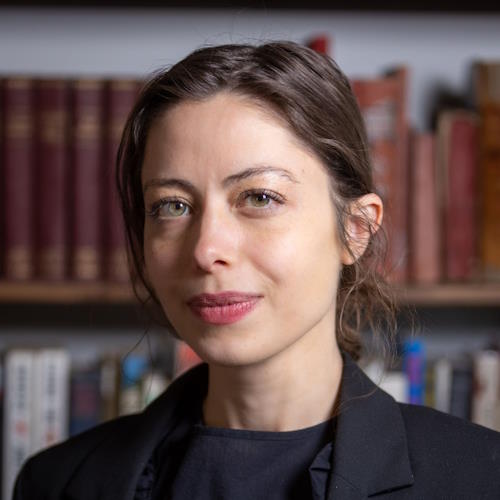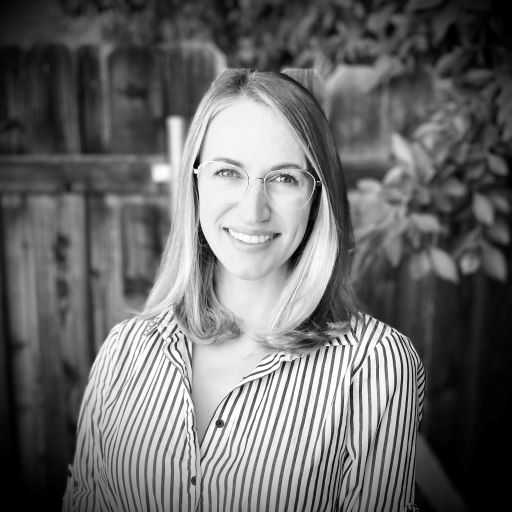The HUMAN project, in collaboration with the Chicago History Museum (CHM), is developing ChiBot, a generative tool that will engage with CHM's extensive collections and documents to support the “Mapping Chicago” project with a goal of better representing Chicago's diverse communities.
ChiBot will also help extract spatial data from CHM collection items to inform visualizations on a comprehensive map, which will serve as the foundational access to information. The collaboration will digitize manuscripts, oral histories, and print collections focused on historically underrepresented ethnic, racial, gender, and religious groups. These collections, along with the Encyclopedia of Chicago, will serve as robust training materials for ChiBot, enabling it to analyze existing content for biases, identify gaps in representation, and suggest alternate resources and collection items to counter and fill those biases.
About the Chicago History Museum
The Chicago History Museum is situated on ancestral homelands of the Potawatomi people, who cared for the land until forced out by non-Native settlers. Established in 1856, the Museum is now at 1601 N. Clark Street in Lincoln Park, its third location. A major museum and research center for Chicago and U.S. history, the Chicago History Museum strives to be a destination for learning, inspiration and civic engagement. Through dynamic exhibitions, tours, publications, special events and programming, the Museum connects people to Chicago’s history and to each other. To share Chicago stories, the Museum collects and preserves millions of artifacts, documents, images and other items that are relevant to the city's history. The Museum gratefully acknowledges the support of the Chicago Park District on behalf of the people of Chicago.
Project Team
Rebekah Coffman
 Rebekah Coffman is a historian, preservationist, and curator currently serving as curator of religion and community history at the Chicago History Museum where she leads the Chicago Sacred initiative. Her interdisciplinary work is at the intersection of religious identity and the built environment and explores themes of tangible and intangible heritages in material and visual culture through place-based, community-centered approaches.
Rebekah Coffman is a historian, preservationist, and curator currently serving as curator of religion and community history at the Chicago History Museum where she leads the Chicago Sacred initiative. Her interdisciplinary work is at the intersection of religious identity and the built environment and explores themes of tangible and intangible heritages in material and visual culture through place-based, community-centered approaches.
She has been a contributing curator to the Religion, Art, and Technology Lab, curating the 2021 digital exhibition Tangible/Intangible, and founded the Sacred Shift Project in 2019, an ongoing research project surveying religious buildings adaptively reused by different faith traditions.
Her research has been recognized, including NYU’s Gavin Stamp Award in Adaptive Reuse in 2019, a commendation by the Society of Architectural Historians of Great Britain in 2020, and Architecture, Culture, and Spirituality Forum’s 2023 Lindsey Jones Memorial Research award.
Angela Hoover
 Angela joined the Chicago History Museum in 2011, working as curatorial assistant on the Shalom Chicago exhibition. She now oversees the creation, access and use of CHM’s digitized collections. Angela holds a bachelor’s degree in history from Northern Illinois University and a Digital Archives Specialist certificate from the Society of American Archivists. Her interests lie in the intersection of intellectual property law and cultural heritage work, reparative language in descriptive metadata, and the ethical use of artificial intelligence to streamline metadata creation and enhance discoverability of archival collections.
Angela joined the Chicago History Museum in 2011, working as curatorial assistant on the Shalom Chicago exhibition. She now oversees the creation, access and use of CHM’s digitized collections. Angela holds a bachelor’s degree in history from Northern Illinois University and a Digital Archives Specialist certificate from the Society of American Archivists. Her interests lie in the intersection of intellectual property law and cultural heritage work, reparative language in descriptive metadata, and the ethical use of artificial intelligence to streamline metadata creation and enhance discoverability of archival collections.
Melissa Rovner
 Melissa Rovner is a Historian of Architecture and Urban Studies, as well as a licensed Architect and practitioner in the Digital Urban Humanities. Her research focuses on the intersections of design and development in the materialization of neo/colonial, racialized, and gendered power dynamics. In her pedagogical, curatorial, and web development work, she works to expose hidden histories of designed inequality, and to propose alternative inclusive futures. Her work has earned the support of several Mellon Foundation grants, including an Excellence in Pedagogy and Innovative Classrooms (EPIC) grant for the development of a layered mapping website, and a Fellowship as a Digital Humanities Curator at the Chicago History Museum. Rovner's research has been published in several renowned academic journals including the Journal of Planning History and Enquiry, the ARCC Journal for Architectural Research. She has taught Architectural design, history, and theory at UCLA, UIC and IIT, and is currently a Lecturer in Public History at Lake Forest College.
Melissa Rovner is a Historian of Architecture and Urban Studies, as well as a licensed Architect and practitioner in the Digital Urban Humanities. Her research focuses on the intersections of design and development in the materialization of neo/colonial, racialized, and gendered power dynamics. In her pedagogical, curatorial, and web development work, she works to expose hidden histories of designed inequality, and to propose alternative inclusive futures. Her work has earned the support of several Mellon Foundation grants, including an Excellence in Pedagogy and Innovative Classrooms (EPIC) grant for the development of a layered mapping website, and a Fellowship as a Digital Humanities Curator at the Chicago History Museum. Rovner's research has been published in several renowned academic journals including the Journal of Planning History and Enquiry, the ARCC Journal for Architectural Research. She has taught Architectural design, history, and theory at UCLA, UIC and IIT, and is currently a Lecturer in Public History at Lake Forest College.

